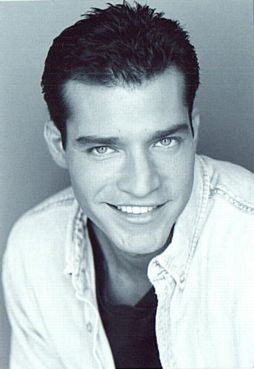December 2002
Craig Nabat's Story
 My name is Craig, and I'm a 31-year-old entrepreneur from Detroit. Three days after I was born I had my first surgery to repair my cleft lip and palate. The last of my six surgeries was done back in sixth grade.
My name is Craig, and I'm a 31-year-old entrepreneur from Detroit. Three days after I was born I had my first surgery to repair my cleft lip and palate. The last of my six surgeries was done back in sixth grade.
During my childhood my mother and father instilled great confidence in me. They pushed me to excel in baseball, dancing, skiing, weightlifting, education, etc., all in order to build my self-esteem. Instead of looking at my cleft lip as a downfall, my parents were able to retrain my thinking, so I viewed my looks as being special instead of strange.
I know the feelings of young children being asked on the playground, "Why do you have that scar on your lip?" Each time I was asked, a weird chill would come over me, but I always responded by telling the other kids exactly what condition I was born with. After a while, I could talk about it with a great deal of confidence. I knew it was part of me and something I should learn to live with. I choose to look at it as something positive instead of negative.
Throughout my entire life I've had great passion to help and inspire people. I dreamed to be in the public eye so I could have the ability to affect many peoples' lives. Without a doubt it has all been related to my cleft lip. My mother would talk about Stacy Keach, TV's "Mike Hammer", and how he became a great actor. She proceeded to say how successful he was despite having a cleft lip. She would always say, "Son, you could be an actor too."
With Mr. Keach as my inspiration, I vowed one day to become an actor. Throughout college I appeared in several local TV commercials, a movie, and did some modeling. While attending Arizona State University, I enrolled at a local acting school near campus. Acting classes gave me knowledge, confidence, and on-camera skills. The other students would say, "We could see you acting in a soap opera."
I moved out to Los Angeles to become an actor while I was taking my last two college credits. I talked a close friend of mine into making the trek out there with me with all our belongings packed in a U-haul. After being in California for three weeks, I started thinking, "Why do I really want to be an actor?" It amazed me to learn it was really all about a need for mass acceptance, rooted from being born with a cleft lip.
I said to myself, "What are my chances of making it in this business? Don't real actors have a love for theater?" In all reality I just wanted to be on television. This was not a good enough reason for me to spend the next who-knows-how-many years attempting to become a professional actor. I ended up moving home shortly after. At the time it crushed me to give up on this dream.
Well, eleven years later my dreams of being on TV have come true. I appear in all my own company's TV advertisements and have pitched my inventions on home shopping channels like QVC and Home Shopping Network. I'm now known for inventing the TV infomercial product the FINDIT-key finder. I ended up marketing my key-finder product using my own image on all my company's retail packaging and advertisements. (www.ambitiousideas.com)
These opportunities have now made it possible to start manufacturing and marketing other peoples' inventions, too. One of the next products we are coming out with is a bat and ball product invented by an 8-year-old boy with disabilities. I was amazed by his invention story and vowed to his mother that I'd help them bring his product to the mass market. Strangely enough the child's mother was also born with a cleft lip. (www.ideafinder.com/history/inventions/jdbatball.htm)
I hope I can give other people born with clefts the belief that they too can live amazing lives despite being born looking different. Being born with a cleft lip gave me the motivation to accomplish something out of the ordinary. In many ways I feel blessed to be born this way. For those children worried about their futures, I say this: Please believe in yourself and push yourself to excel at many different things in your life. You'll learn as you get older that how people treat you is based on how you look at yourself, not on how you actually look.